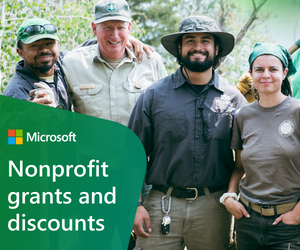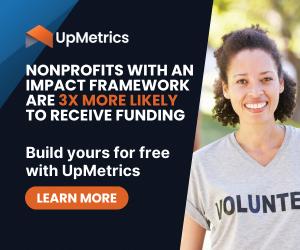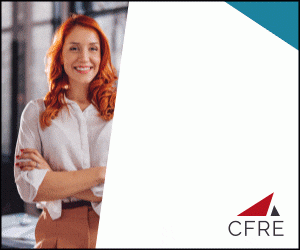AFP Chapter Spotlight: Northern New England Chapter
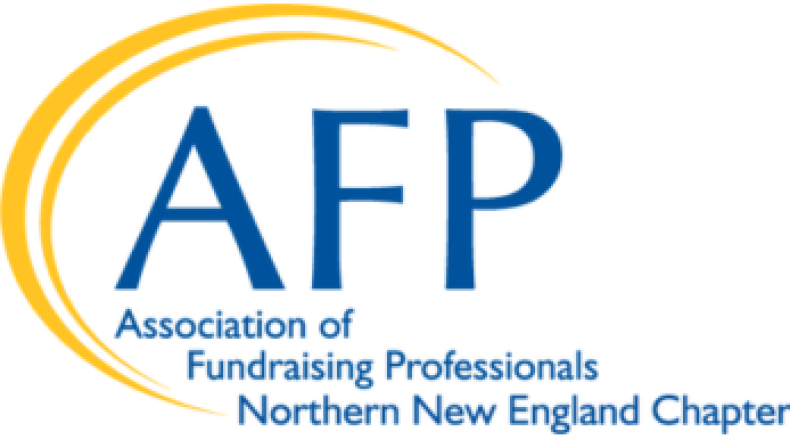
Chapter works to build membership post-pandemic
Kristen Welch, CFRE, is the president of the Northern New England (NNE) Chapter of AFP.
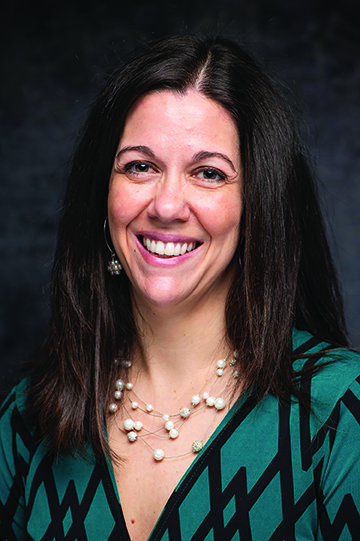 Welch, who has been an AFP member since 2015, is the director of development at NAMI (National Alliance on Mental Illness) New Hampshire, where she oversees all fundraising operations for the organization.
Welch, who has been an AFP member since 2015, is the director of development at NAMI (National Alliance on Mental Illness) New Hampshire, where she oversees all fundraising operations for the organization.
Her career in fundraising for mental health and suicide prevention spans more than 20 years, as she previously served as director of development and communications at two of New Hampshire’s community mental health centers.
A native of Pittsburgh, Pennsylvania, Welch is a graduate of the University of New Hampshire. She earned the CFRE certification in 2016.
Kristen lives in the Seacoast region of New Hampshire. When she isn’t working, Welch enjoys trail and road running, visiting New Hampshire’s lakes and beaches, yoga, and baking.
Welch recently agreed to discuss the Northern New England Chapter of AFP.
AFP: Tell us a little bit about your chapter.
KW: We are just over 200 members strong. In 1984, the Maine chapter merged with the Vermont/New Hampshire group. We grew significantly in 2014 after a smaller, New Hampshire-based fundraising council dissolved and many of those members joined AFP-NNE.
AFP-NNE is unique in that we encompass three states and have a unique and diverse geographic representation. From the beautiful rocky coast of Maine to the majestic mountains of Vermont to the clear blue lakes of New Hampshire, our chapter covers a vast and beautiful region that is home to nearly 20,000 nonprofit organizations.
AFP: What’s the biggest challenge your chapter faces?
KW: Membership has been a challenge since 2020 for sure, but we’re proud to see it bouncing back in recent months. Like so many other chapters, we saw our membership decrease from attrition in the industry and strained budgets during the height of the pandemic. It’s been incredibly encouraging to see our numbers grow this past year. We are at a membership level we haven’t experienced in several years.
AFP: What’s the biggest opportunity your chapter has?
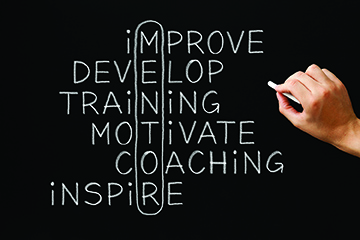 KW: For us, having to embrace a virtual world was a silver lining. With the wide region we cover, we struggled for years with getting people to in-person events. It’s challenging to find a central location that is accessible and within a reasonable distance for our members—especially for a half-day workshop or a networking opportunity. Bringing programming online has helped to engage more members in meaningful ways. Our spring conference is now virtual, and we offer two digital programs annually. Our Regional Connects, which are networking groups open to members and not-yet-members, are meeting online as well. We currently have six Regional Connects in all three states, and attendance hovers between 20 and 50 for each online meeting. Fundraisers are busier than ever these days, but we still crave connection and contact. Our chapter is conscious of the need to balance online options with in-person opportunities to ensure we’re offering professional development and networking in an efficient and effective manner.
KW: For us, having to embrace a virtual world was a silver lining. With the wide region we cover, we struggled for years with getting people to in-person events. It’s challenging to find a central location that is accessible and within a reasonable distance for our members—especially for a half-day workshop or a networking opportunity. Bringing programming online has helped to engage more members in meaningful ways. Our spring conference is now virtual, and we offer two digital programs annually. Our Regional Connects, which are networking groups open to members and not-yet-members, are meeting online as well. We currently have six Regional Connects in all three states, and attendance hovers between 20 and 50 for each online meeting. Fundraisers are busier than ever these days, but we still crave connection and contact. Our chapter is conscious of the need to balance online options with in-person opportunities to ensure we’re offering professional development and networking in an efficient and effective manner.
AFP: How do you show the value of AFP to your membership?
KW: When you join AFP-NNE, you are part of a unique regional network of fundraising professionals committed to making a difference in their communities and abiding by the highest ethical standards. We strive to make programs accessible and available to members and not-yet-members, and we always aim to convey the value of being part of a community of fundraisers and the benefits that yields.
AFP: How have you seen the membership of the chapter change over the years? What has it meant for the chapter and what it does?
KW: We’ve seen membership ebb and flow, like so many other chapters. After dipping to a low of around 150 during the height of the pandemic, we’re proud to be back with a robust membership we haven’t experienced in several years. Recent trends we’ve noticed include a rise in multiple members from the same organization, members who have participated in Regional Connects, and mentees who have been inspired to join after participating in the Mentor-Mentee Program. We are fortunate to have so many seasoned professionals who have been members for many years continue to remain active. It’s been so helpful to learn from them and seek their feedback.
AFP: What advice would you give to chapters and chapter leaders?
KW: Be bold, be brave, and think outside the box. It’s easy to fall into the “we’ve always done it this way” trap, but innovation and creativity—even if they fail—are how we learn and grow.
AFP: What chapter program are you the proudest of?
KW: Our Mentor-Mentee Program, which began in 2016 thanks to the perseverance and dedication of a group of volunteers, is one of our most effective and exemplary programs.
AFP: How and why did your chapter choose to focus on mentoring?
KW: This program is a testament to the power of volunteers. Seven years ago, a group of seasoned development professionals and active AFP-NNE members recognized the need to provide professional growth guidance to fundraisers newer to the field. However, mentoring had been tried twice in the chapter’s history and had failed twice, so they were conscious of a thoughtful approach to ensure sustainability. This group of passionate volunteers formed a task force and spent a year researching programs at other chapters, surveying members, and interviewing prospective mentors. In 2017, they made a recommendation to the board, and the program was formally launched in 2018. Today, they have guidelines, protocols, and a clear structure to ensure the program’s success. A dedicated committee of volunteers oversees the program. Today, the Mentor-Mentee Program has successfully matched 57 pairs and is in the midst of recruiting for the next round in January 2023.
AFP: Tell us a bit more about the two different mentoring programs the chapter operates, your Mentor-Mentee Program and Regional Connects. Why was it important to include nonmembers?
KW: Recognizing the challenges of having such a broad region, the Regional Connects were launched several years ago to provide fundraisers with networking opportunities in their own communities. The six Regional Connect groups meet virtually, although some are returning to periodic in-person meetings. Folks have appreciated the opportunity for informal conversation and an additional way in which to develop their professional networks.
Be bold, be brave, and think outside the box. It’s easy to fall into the “we’ve always done it this way” trap, but innovation and creativity—even if they fail—are how we learn and grow.
While we require mentors to be members of our chapter, there is no such requirement for mentees. We felt it was important to make both the Regional Connects and the Mentor-Mentee Program accessible for not-yet-members as a way to introduce professionals—who might be starting their careers, who might be new to the area, or might be from smaller shops—to the value of AFP. Both programs are a wonderful introduction to the chapter and the camaraderie, support, and professional development we can offer to professionals at all stages of their careers.
AFP: What has been the impact of those programs on the chapter?
KW: Both the Regional Connects and Mentor-Mentee Program have led to increases in membership, and they’ve both been model programs that demonstrate the value of having a professional network. They really are wonderful at effectively communicating what it means to be a member of AFP-NNE.
AFP: How has your chapter been addressing issues related to IDEA—inclusion, diversity, equity, and access?
KW: We are in the early days of addressing IDEA, but our board is committed to learning, growing, and identifying what diversity looks like for our region. Our conference has included sessions on women in philanthropy, community-centric fundraising, and other timely topics. And we continue to seek opportunities to engage speakers from diverse communities and different perspectives on philanthropy. We know we have work to do, but we’re ready to dive in.
AFP: What kinds of awards do you offer to spotlight and recognize those involved in fundraising and philanthropy?
KW: Each year at our fall conference, we celebrate National Philanthropy Day (NPD) with two inspiring and heartwarming awards sponsored by Demont Associates of Portland, Maine. We honor an Outstanding Philanthropist, an award that is open to either an individual or a family. The highlight of NPD, though, is always the Outstanding Youth in Philanthropy Award. This award is given to a youth or young adult who has had a transformational impact on their community through philanthropy. It’s incredible to see the passion and drive these young people have for the causes near and dear to them. A video is produced and viewed at the NPD luncheon, and it’s rare to have a dry eye in the house. NPD helps to remind us why the work we do is so important and inspires us to continue, even though the days are sometimes difficult.
AFP: What do you think 2023 will look like for your chapter?
KW: I hope that 2023 is a year of continued growth. Our board made a commitment this year to “get back to basics” and focus on doing fewer things but doing them exceptionally well. We scaled back our education programs and continued to grow the Mentor-Mentee Program and the Regional Connects in a virtual world, and we’ve experienced success with that strategy. I’m hopeful that we’ll continue to engage members in committee work to grow the leadership pipeline, and that many more not-yet-members will be inspired to join our chapter.

